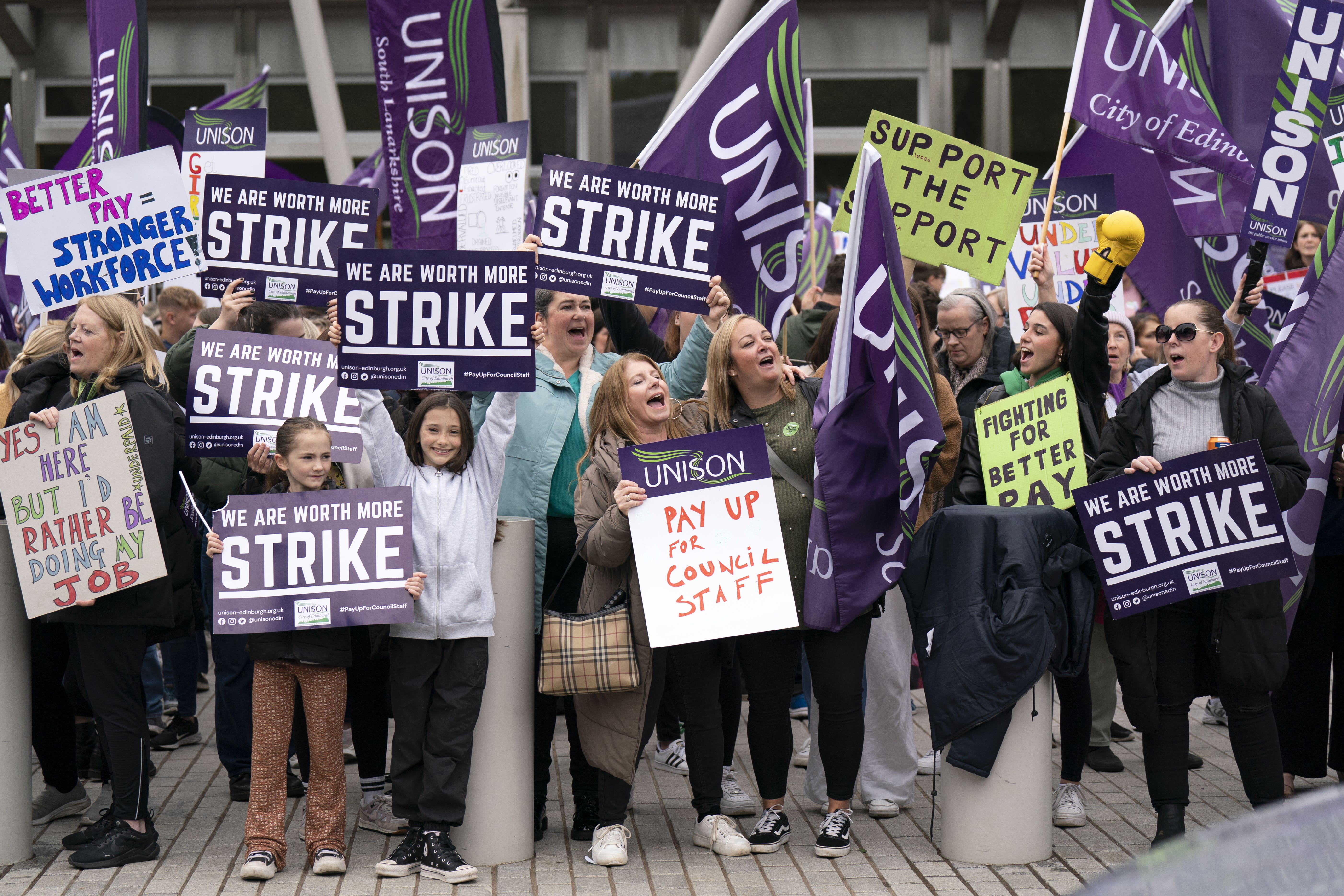Trade union law in breach of workers rights, Supreme Court rules
‘If employees can only take strike action by exposing themselves to detrimental treatment, the right dissolves’, Lady Simler said.

UK trade union law breaches workers’ rights and “encourages and legitimises unfair and unreasonable conduct by employers”, the Supreme Court has ruled.
On Wednesday, five justices at the UK’s highest court unanimously ruled the UK has breached its duties over the right to take part in lawful strikes in what Unison’s general secretary described as the “most important industrial action case for decades”.
Judges were considering the case of Fiona Mercer, a care worker who was suspended by her employer after taking part in a planned strike.
Ms Mercer previously took legal action against the Alternative Futures Group, a charity providing a range of care services across north-west England, after she was suspended in 2019.
In 2022, three Court of Appeal judges ruled against Ms Mercer, a member of Unison and a union representative, following an intervention on behalf of the Business Secretary, and overturned a ruling made by a judge sitting in an employment appeal tribunal.
But in a judgment on Wednesday, Lady Simler found the law had a “complete absence” of protection against sanctions short of dismissal intended to deter or punish trade union members from taking part in lawful strikes.
It’s a victory for every employee who might one day want to challenge something bad or unfair their employer has done
Lady Simler, whose ruling was supported by four other justices, said: “In my judgment the right of an employer to impose any sanction at all short of dismissal for participation in lawful industrial action nullifies the right to take lawful strike action.
“If employees can only take strike action by exposing themselves to detrimental treatment, the right dissolves.”
She continued: “It is hard to see what pressing social need is served by a general rule that has the effect of excluding protection from sanctions short of dismissal for taking lawful strike action in all circumstances.”
The judge added that the legislation at the heart of the case “both encourages and legitimises unfair and unreasonable conduct by employers”.
Lady Simler also said the protection in place was limited to strike action taken outside of working hours, adding that “to withhold labour at a time when the employer has no expectation of labour being provided is unlikely to have any consequence”.
She later said there have been no findings of fact about Alternative Futures Group’s intentions “nor about the reasonableness or proportionality of its actions”.
Following the ruling, Unison general secretary Christina McAnea said: “This is the most important industrial action case for decades.
“It’s a victory for every employee who might one day want to challenge something bad or unfair their employer has done.
“Rogue bosses won’t like it one bit. They’ll no longer be able to punish or ill-treat anyone who dares to take strike action to try to solve any problems at work.
“No-one strikes on a whim. There are many legal hoops to be jumped through first. But when a worker decides to walk out, they should be able to do so, safe in the knowledge they won’t be victimised by a spiteful boss.
“The Government must now close this loophole promptly.
“It won’t cost any money and isn’t difficult to do. Today is a day to celebrate.”
Ms Mercer said: “I’m delighted at today’s outcome. Although it won’t change the way I was treated, it means irresponsible employers will now think twice before behaving badly towards their unhappy staff.
“If they single strikers out for ill-treatment, they’ll now be breaking the law.”
TUC general secretary Paul Nowak also welcomed the ruling, describing it as a “monumental victory”.
He added: “Judges have been clear as day. UK law fails to protect workers from bad bosses who punish staff for exercising their right to strike. It breaches international law.
“This Government is racking up embarrassing legal defeats over its attacks on the right to strike, after the High Court recently ruled its strike-breaking agency worker regulations were illegal.
“This is a badge of shame for the Conservatives. They are on the side of bad bosses – not working people.”
Bookmark popover
Removed from bookmarks